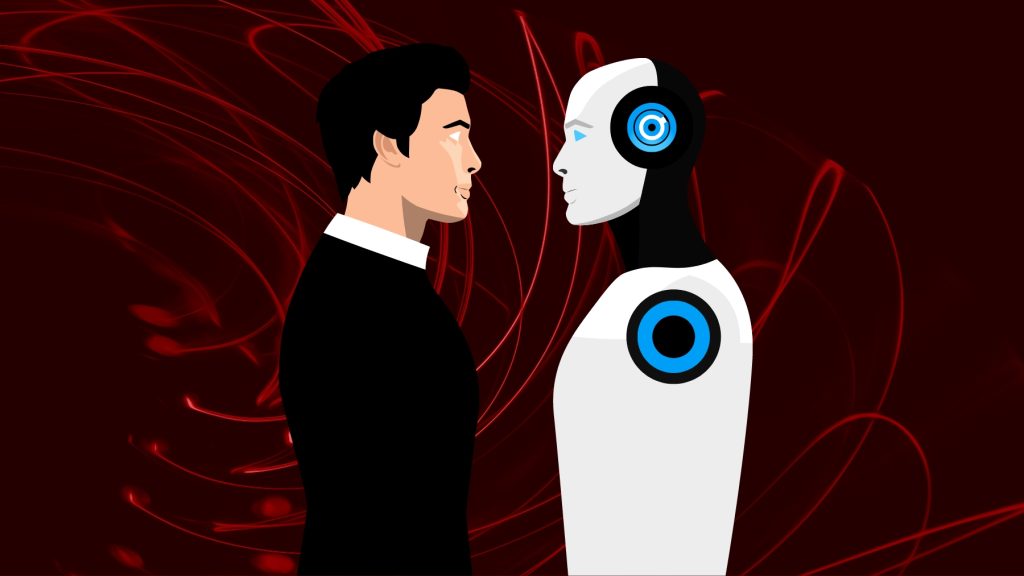
Technology’s blurring boundaries between biology and engineering, and now scientists and philosophers alike are re-examining one fundamental question: why is the human body compared to a fine-tuned machine?
Is the human body essentially an organic machine, and what really separates biological intelligence from artificial intelligence?
At first glance, brains and computers appear analogous, both convert energy, relay signals, and solve intricate problems. But beneath this mechanical veneer is an unbridgeable chasm: the human mind’s alchemy of memory, intuition, and lived experience.
With the latest technological progressions, affective computing could very well simulate empathy. Even if it’s lacking sincerity – what it still cannot do is truly feel the sting of regret or the spark of inspiration that made humans bend reality.
Such disparity between humans and machines is not technical, it’s ontological.
Both systems rely on complex, synchronized processes to perform tasks, whether firing neurons or moving mechanical parts. From weightlifting to computing, humans and machines show striking similarities. Just like machines, our bodies run on energy, store data, and execute functions through electrical signals.
Our machines grow smarter, yet their consciousness will forever remain a ghost in the circuitry. With a poverty of viewing life as mere code, through the lenses of a machine.
The similarities between humans and machines are undeniable, and we find ourselves asking: Are we really that different?
While there are big similarities, the difference between humans and machines is in our ability to sense and think for ourselves. Whereas machines can calculate and work in accordance with order, emotions are something they lack despite scientists’ trials to embed human sense in it.
So, again, why is the human body compared to a finely tuned machine? Simply because our systems work like a network of elements, designed to enable us to live. But it is our emotions, consciousness, and logical thinking that distinguish us from the mechanical world around us.
Where Machines Could Replace Humans and Where They Can’t Yet
The debate isn’t if machines will replace humans, it’s more like where these machines will fall short. Already, humans and machines working together is happening across industries.
AI diagnostics outperform doctors in spotting tumors, and assembly-line robots work with tireless precision. Yet despite all that, no algorithm can replicate a teacher’s ability to human curiosity, or an artist’s rebellion against the mundane. Showing the future isn’t about replacement, it’s about redefinition.
For example, tasks that involve a strong sense of emotional comprehension, advanced creative logic, or the ability to make moral decisions are impossible for machines. Despite technological breakthroughs, humans and machines become one only in a few areas. Therefore, machines complement us but can’t fully function as human beings.
Technology Vs Humanity the Coming Clash Between Man and Machine
While more complex machines are released to the market, there is a new sociology of humans and machines in the making. The differences between us are fading away, but it is important to ask: What are the things that make us truly human in the age of intelligent technology? Why is the human body compared to a fine-tuned machine?
Ultimately, we both work according to systems that complement each other to sustain us and move forward. But in incoming years, the battle between technology and man will certainly increase.
Machines amplify our capabilities but will never eclipse what makes us human. At the end of the day, it’s all about our fragile interplay of feelings and logic, the weight of conscience, the spark of intuition. As technology progresses, we must draw a line.
Automation may streamline our labor, but it cannot replicate human judgment, ethics, or even capacity to wonder. So, ask yourself, is it really a matter of whether machines can replace humans? Or is it a question of where we will allow them to?
Will we continue to be the architects of our fate, or surrender to the very systems we designed? The future will prove to us as we continue to coexist with more advanced machines.
Inside Telecom provides you with an extensive list of content covering all aspects of the tech industry. Keep an eye on our Intelligent Tech sections to stay informed and up-to-date with our daily articles.